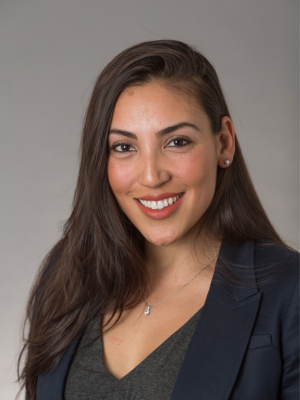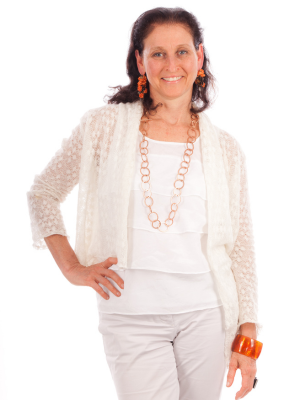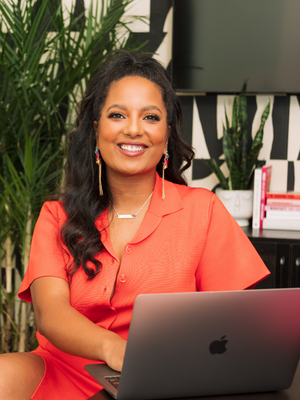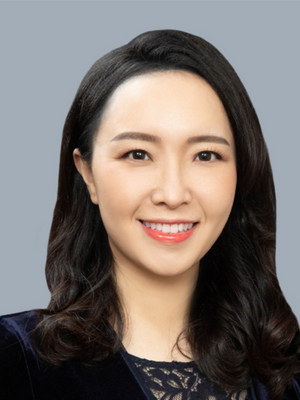 “The problem just seemed so big, and I somehow had the naive courage to think that I could do something about it,” says Sylvana Q. Sinha, the Bangladeshi-American founder and CEO of Praava Health, Bangladesh’s fastest-growing healthcare company.
“The problem just seemed so big, and I somehow had the naive courage to think that I could do something about it,” says Sylvana Q. Sinha, the Bangladeshi-American founder and CEO of Praava Health, Bangladesh’s fastest-growing healthcare company.
In 2014, Sinha left a promising career in international law to focus on the creation of a new disruptive, innovative healthcare company. The decision was prompted by a health scare her mother faced during a family visit to Bangladesh for a wedding; the challenges associated with the emergency appendectomy put Sylvana up close with the shortcomings of the healthcare system in that country.
Prior to founding Praava Health, Sinha led diverse, interdisciplinary teams in international law, business, development, and government relations at major international law firms (Gotshal, & Manges, LLP and Lovells LLP), management consulting firms (Boston Consulting Group and PricewaterhouseCoopers), the World Bank in Kabul and Afghanistan and New York, and think tanks in the Middle East and South Asia.
She conducted research on business and human rights issues for the Special Representative to the UN Secretary General, held the position of social protection specialist at the International Labour Organization, and served as a foreign policy advisor to the 2008 presidential campaign of then-Senator Barack Obama. Today, Sinha is also a PATH board member and a life member of the Council on Foreign Relations.
Currently serving more than half a million patients, Praava Health’s tech-forward model is designed to be efficient, accessible, and scalable across emerging markets, where 85% of the world lives. Praava’s work has been featured by Forbes Magazine and Financial Times and was recognized by Fast Company as a World Changing Idea in 2020. In 2021, the World Economic Forum named Praava Health a Technology Pioneer, and in 2023, they were named a Global Innovator.
Sinha shared with The Glass Hammer her experience as an emerging market entrepreneur and CEO in a male-dominated field and why she’s using her voice to speak out about the challenges women-led businesses face in emerging markets, particularly when it comes to raising capital.
On taking the wheel to improve healthcare in Bangladesh:
“I spent about a year at the beginning of this journey learning all the pain points of the healthcare system in Bangladesh and talking to patients and those involved in the delivery of healthcare, both in Bangladesh and all over the world. It was like a year long global listening tour.
“The more I dug in, the more I saw how deeply-rooted the problem was, and the more obsessed I became with trying to solve it. Candidly, I didn’t find anyone who both cared about solving this problem as much as I did, and had the global networks and local resources to be able to affect change.
“I came across a lot of people who complained about different parts of the system with no plans to do anything about it. Then, there were those who wanted to solve the problem but didn’t have the right skill sets to contribute. I felt that with my experience as a leader and as a global professional, I had the skills, tools, and access to make a difference. I had access to global leaders and innovators in healthcare that we were able to learn from, adapt the global best practice lessons and bring them back to Bangladesh.
“I’d been looking for ways to make more of a direct impact through my work, and I just felt like this was the opportunity I’d been seeking. This was the thing that was the culmination of all of my skills – managing international risk, managing political and economic risk in an emerging market, and having a direct impact, changing lives on the ground. All of those things together inspired me.
“The problem just seemed so big, and I somehow had the naive courage to think that I could do something about it. I became obsessed with solving this problem.”
On what drove her desire for more direct impact:
“I was on the ground in Afghanistan, but I was working in these large organizations and there was so much bureaucracy that was crippling us, as close as we were, from being able to have an impact. These large organizations are so challenged by their own size and by their own systems that it becomes hard to create change. I thought, maybe you have to just build it from scratch.
“Also, from the early stages of my career as a 22-year-old management consultant and junior lawyer – and throughout my career – I worked for men. In particular, when I worked in the services industry, the men were always pitching business to clients, and I remember they would always claim they could do things that we had never done before. I knew, because I was part of their team, that these were things they’d never done before. But then I realized we could do it. We would sell the business; then, we would go learn, and we would do it. And as a woman, just like many other women I know, I feel like we don’t like to claim we can do things until we’ve already done them.
“This experience taught me that, with the help of a skilled and motivated team, I can learn, and I can make things happen. With the right people, we can build the airplane while we’re flying it.”
On how Praava is disrupting the standard of healthcare in Bangladesh:
“The big challenge in Bangladesh is that in addition to the huge gap in terms of the quality of healthcare, there’s also a changing demographic. We now have a very quickly growing and urbanizing middle-income population.
“We have a country that was traditionally more dependent on foreign aid and charity to provide healthcare for our citizens, and just a generation ago, Bangladesh was considered one of the least developed countries in the world. But now, it’s one of the fastest growing economies. This means more people are accessing the private sector for healthcare. But the private sector is largely unregulated and offers very dramatic variations in terms of the quality of healthcare.
“I think the public system does a really good job in terms of prioritizing primary care. But for anything beyond basic vaccinations and deliveries, the masses are accessing the private system. In Bangladesh, 72% of health spending is coming from the private sector. And this is true across South Asia. In most countries, the opposite is true – the health funding is mostly coming from the government, but in South Asia, the private sector is driving the growth.
“The very specific pain point is providing quality healthcare at an affordable price point. When Praava entered the market, the average amount of time doctors spent with patients was 48 seconds. There were only four international standard labs for a country of 170 million people. And 20%+ of drugs in the market were counterfeit.
“What Praava offers, at an affordable price point, is a one-stop shop for all of your outpatient healthcare needs that’s truly at a world-class level: The doctors are practicing protocolized medicine and spending at least 15 minutes with each patient. Our lab meets international standards. Our pharmacy guarantees that there are no counterfeits because we source directly from manufacturers. We’re the only player that owns the outpatient healthcare experience and the only player that does so with both in-clinic physical services, as well as remote and virtual care. While there is still work to be done, we’re contributing to positive change.
“One of the greatest rewards has been hearing stories from our patients about how we’ve been able to change their lives. A lot of people say they never thought they could have healthcare like this in Bangladesh. They thought they would have to travel abroad. To hear that feedback is extremely rewarding and gratifying.”
On how her experience has prepared her to be an emerging market entrepreneur:
“This role is the confluence of all of the different things that I’ve done, particularly when I’ve been forced to manage uncertainty. I think my legal training gave me a framework for how to think in general and how to think about solving problems in a really methodical and logical way. My experience as a management consultant, and working in war-torn regions such as Afghanistan, helped me to learn how to navigate uncertainty methodically, how to problem-solve, and how to be constructive.
“Also, as a lawyer, advising clients on managing risk in investing in new countries and legal disputes in those markets helped prepare me. And my experience working in U.S. foreign policy allowed me to consider how different people think about the world and how Americans, in particular, see the rest of the world.
“The resilience of continuing to fight against daily, or even hourly, ups and downs is what I feel came from all of my various experiences.
“There’s an obsession with very young entrepreneurs, like Mark Zuckerberg, who quit college and go off to start their companies. “But I think building a new scalable business is really, really hard. I don’t think I could have done it when I was in my 20s. There’s a lot of evidence that the most successful entrepreneurs are people who start their companies in their late 30s and early 40s. I started when I was 37. I think that coming to entrepreneurship a bit later, after I had done a lot of different things, made me much more prepared for the resilience and patience that was required and is still required for what we’re building.”
On why we need to (sincerely) fund women entrepreneurs in emerging markets:
“My biggest surprise of this journey is how hard it has been to get funding. I really thought that if we proved the economics of our business, investors would want to invest. Once we prove our value proposition, investing should be a no-brainer. Well, our unit was profitable in ten months, as of November 2018, and I quickly discovered that it’s entirely untrue that proving the economics of your business alone is enough to get investors to invest.
“It’s been eye-opening for me to learn that 80% of venture dollars go to companies headquartered in New York, Massachusetts, and California – still sees the rest of the world as a charity case, not a place to make money.
“So that has pushed me to use my voice and platform to educate people on the opportunities that exist for emerging market entrepreneurs – and the overlooked opportunities financially, particularly for women. The amazing thing about emerging market businesses is you have an opportunity to make money and to have a big impact. Telling that story in a truly compelling and impactful way has been a challenge.
“As an American woman who moved to Bangladesh for the first time in my life to start this company, I’ve seen firsthand how hard it is for women entrepreneurs to access capital. There’s a lot of micro-money for women in emerging markets and outside the United States. But there’s not a lot of money for women to scale their businesses. There’s barely any, actually.
“When we hear about funding for women’s entrepreneurship and women-focused venture capital firms, unfortunately, it’s primarily U.S. and Europe-focused. Even Pivotal Ventures, founded by Melinda Gates, only invests in the United States.
“So the only way to help these countries stand up on their own and be less aid-dependent is to develop the private sector, which requires investment. And the only way to empower women in these countries is to help them build wealth. And the only way to build wealth is to have more access to capital.
“Women are not going to access power and be able to build their wealth if you only give them $10 a month to fund their micro-enterprises. That’s great. But once those micro-enterprises are ready to scale, at this moment, there’s no one to fund them.
“I’m still learning how to tell the story of how these problems are intertwined. Being a public figure and the public face of the organization is outside my comfort zone, so this role is really pushing me. But I realized these lessons are unique and need to be told.
I was at the Forbes 30/50 Summit on International Women’s Day in Abu Dhabi, which was supposedly one of the largest global gatherings of women leaders and innovators. Every single entrepreneur speaker was from America. The only speakers from outside the U.S. were focused on themes like human rights and charity.
“I found this offensive, and I gave that feedback. There are women leaders in other countries. There are female-founded unicorns in India. Canva was founded by a woman in Australia. We have to stop thinking that America is the center of the world. There are huge opportunities outside the U.S. Even BlackRock pointed out that in 2023, when you’re going through global recession, the only parts of the economy still growing are emerging markets.
“We must break out of thinking that the rest of the world needs charity, and America is where people make money.”
On leading in an industry where less than 15% of CEOS are women:
“Eighty-five percent of healthcare decisions for households all over the world are made by women. Sixty-five percent of health workers are women. I’ve always felt that being a woman ultimately makes me a better leader. It makes me better at building healthcare products for consumers and bringing the voice of women to the table. For that reason and so many more, we need more women leaders at the table.
“As a female leader, I think I have been both challenged and underestimated. I’ve been told directly by men who’ve been in the room when I pitch that I’ve been asked questions that investors wouldn’t think to ask men, and that investors challenge me and push back in ways they just don’t with men.
“But what I say about that, ultimately, is that it makes me a better founder. Because I have to have the answers to those questions. Knowing my business better is always a good thing. So yes, I’m sure it’s challenged me in ways that are not equal or fair. But ultimately, it makes me better and it makes my company better.”
On leveraging her voice and platform to challenge the status quo:
“I was at the J.P. Morgan Healthcare Conference that happens in January each year in San Francisco. It’s the largest healthcare investing conference in the world, though it’s mostly U.S. focused, and there was a panel of eight white men. How is this happening in 2023? This was 2023, and it was a panel talking about healthcare with eight white men.
“I think leadership is a double-edged sword for women. Because it’s harder for women, women don’t necessarily want to go after it. So you have fewer women going into leadership roles in this sector. Also, America likes seeing women-founded companies that are wellness-focused or fashion-focused. Those are important companies, and no disrespect to those founders, but I just think America is more comfortable with female founders for those types of businesses. We need to see more women leading financial services organizations and building companies that are providing basic services for consumers who are more than 50% women. We all have these needs in our life, so we need women’s voices to create the solutions.
“The lack of women in leadership in my field has pushed me to recognize that because there are so few women in these roles, I have to push myself to be out there more and to use my voice.”
On ‘walking the walk’ of valuing women in the workplace:
“An unexpected outcome of this journey has been recognizing the importance of valuing women’s work in business.
“During my first year as a founder, every single woman who worked for me – aged 22 to 40+ – on my team of 25 people got pregnant. This accounted for about half the team. It was a challenging year, to say the least. When one of my management team members came to me and told me she was also pregnant, she cried. I’m committed to being a founder who supports women, and while it was hard to manage, we did it.
“My team was able to rise to the occasion and create a workplace that truly supports women – even at a small startup with only 25 employees, we were able to succeed even with half the team out for three to six months in one year. And we are stronger for it. Providing the support women need to thrive in their careers IS possible.
“As an employer, I have now seen firsthand that women ask for less money and undervalue themselves. In our first year, a member of my management team asked for a certain salary, and we gave her what she asked for. Then, we did a market study, and I learned she was earning 30 to 40 percent less than the market, even though she had foreign experience at multinationals in the U.S. So I bumped her up – she didn’t ask for it, and she wasn’t going to. But it was the right thing to do.
“It’s so powerful to see the impact of the choices that create a supportive workplace for women. For example, during the pandemic, we did a lot of COVID testing through part-time consultants. When we discontinued some of their contracts, one of the women lab technicians begged us to find a job for her, explaining that she’d never worked in an organization that valued women the way ours does.
“This experience was so humbling. Frankly, I don’t know that I’ve been as intentional as I could have been about creating that workplace. But when the senior leadership of an organization has women at several points (at times, more than 50% of the management team), it trickles down.”
On why the world is waiting for women to step up:
“Our world has a lot of really big problems that need solving. I’m focused on one of them, but there are so many more that affect our day-to-day lives and our futures. We need people who are willing to take on these issues. We don’t get it right every day – I know I don’t – but what’s important is that we continue to have a positive impact. That’s what makes everything worth it.
“During a period in 2021, we were facing some regulatory challenges. It was a really dark time for me as a leader. I personally didn’t know how we were going to get out of this situation. As a resilient leader, I had faith we would but I didn’t know how.
“I do a lot of one-on-ones with people in the organization at all different levels, and I was doing more at this time to make sure the team felt supported, that we were being transparent, and that they had an opportunity to ask questions.
“In that time, I learned that they totally have faith in us as a management team. They know what we’re doing is the right thing and that we’re going to get through this. That was so inspiring to me to hear that and to see that in them. They were at risk of not even getting paid next month, but they were sure we’d figure this out. They were all so blasé about it and were just focusing on their regular day-to-day work. They put so much faith in me, and in us as a management team, that it was a great reminder that they believe in what we’re doing. What we’ve built is so much bigger than me or them, and it needs to be.”
On how she defines her own integrity as a leader:
“I think we’re always driven by treating each other well. I listen to this podcast series, Wiser Than Me, by Julia Louis-Dreyfus. She herself is 62, and she interviews all women older than her. Yesterday, I was listening to the episode with Diane Von Furstenberg, and she said the only thing we can control in life is our character.
“This really resonated with me. We cannot control the weather. We cannot control the markets. We cannot control whether investors are going to invest or not. But what we can control is the way we treat each other — from giving the security guard at the entrance of a building a friendly hello to the empathy and kindness we give our patients, it’s all about treating each other well. That’s always my guiding force – to be able to feel proud of how I interact with other people.
“There have been some hard moments where someone on my team has let me down, and I’m upset and disappointed. And these are the moments when we show who we really are. No matter what, leading in a respectful and dignified way is always important.”
Interviewed by Aimee Hansen
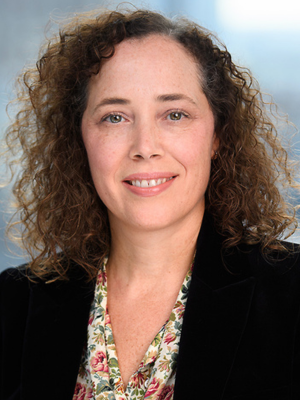 “As a leader, it’s less about you the more senior you become. It’s about who you lead and being available, honest and authentic with your teams,” says Lola Ninonuevo. “It is a pivot to realizing you’re here to serve people and you have to make time.”
“As a leader, it’s less about you the more senior you become. It’s about who you lead and being available, honest and authentic with your teams,” says Lola Ninonuevo. “It is a pivot to realizing you’re here to serve people and you have to make time.”


